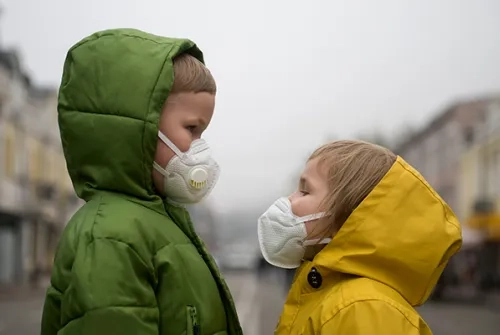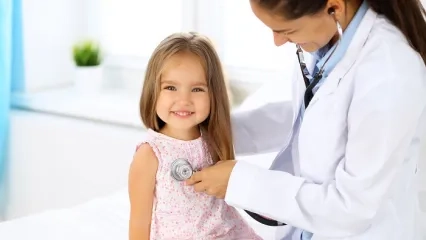Alo Yeditepe
Alo Yeditepe
How Can We Protect Children from COVID-19 Coronavirus?
As information about the coronavirus is updated daily, parents are increasingly concerned about protecting their children. Prof. Dr. Filiz Bakar, Head of the Department of Pediatrics at Yeditepe University Faculty of Medicine, stated that children might be kept safe with information about this virus and other similar viruses.
Actually, Experts, reminding that millions of people worldwide face the flu every year, and some lose their lives, emphasized the need to take precautions against the coronavirus instead of fearing it. Noting that both diseases spread in a similar way, they offered the following recommendations for parents.
Make sure children wash their hands properly
One of the primary measures that can be taken both at home and at schools is handwashing. Ensure that children wash their hands before and after meals, after being in public places, and especially after being close to a sick person. Make sure that children wash their hands with water and soap for at least 20 seconds. In places where water is not available, use hand sanitizer, covering the entire hand, including the tops and between the fingers.
Strengthen your immune system
Having a strong immune system is crucial for preventing illness. A healthy diet, outdoor exercise, and adequate sleep help strengthen children's immunity. Ensure that children consume plenty of fluids.
“Teach children not to touch their faces with dirty hands”
As it may be challenging to enforce this with a child, explain to them that they should not touch their mouth, nose, or eyes without washing their hands. If they need to scratch their nose for any reason, teach them to use a tissue and dispose of it afterward. Ensure they use a tissue when sneezing or coughing and then dispose of it. If they don't have a tissue, instruct them to cough or sneeze into the upper part of their arm or towards their wrist, not their hands.
“Ensure not to touch surfaces in crowded Environment”
"In times of an pandemic, try to avoid closed, crowded spaces as much as possible. Especially, teach them to be careful while touching surfaces in closed areas such as shopping malls or public spaces. As it can be difficult to explain this to children , try to come up with creative solutions. Wiping commonly used chairs or tables with a wet wipe before using them can also be beneficial."
Avoid Sick People
Try to keep children away from sick individuals in your surroundings as much as possible. Ensure that individuals Who show disease symptoms such as sneezing or coughing are not close distance to them. However, there is no need to keep children away from schools or social environments. The important thing is to take necessary protective measures.
Ask guests who come from outside to wash their hands
Also ,Do not shake hands and Do not kiss people.
"If there is a sick family member, make use of a mask."
If someone in the family has a fever or cough, ensure they wear a mask and pay extra attention to handwashing.
“Prevent sick individuals from having contact with your child as much as possible."
"If there are signs of illness, do not send your child to school. Sending them to school with symptoms of infection could easily cause to the spread of the infection to other children."
This content was prepared by Yeditepe University Hospitals Medical Editorial Board.
”
See Also
- Does Breast Milk Protect Against Diseases?
- What is Heel Blood? Why is heel blood taken?
- Special Care for Premature Babies
- What is the Goal in Newborn Intensive Care Treatment?
- Set the Rules from the Beginning!
- What is a Premature Baby and How to Feed it?
- It is Possible to Protect Children From Diseases with Simple Precautions
- Preschool Health Checks Increase Socialization and Success
- Ten Hints for Providing Care for Premature Babies
- Are Pre-School Health Checks Done?
- Keep It Away From Packaged Products To Strengthen Children's Immunity
- ‘Hand, foot, mouth disease’ Warning from the specialist of the subject: "It is more Common in Children Going to the Pool in Summer!”
- 648 Grams Born Baby “Umut” Succeeded in Clinging to Life
- High Fever in Children Article Series II
- Notice the Dangers in the School Bag!
- How Should the Development of a Baby Be?
- High Fever in Children
- Breastfed Babies Have Lower Blood Pressure, and Their Hearts are Healthier
Alo Yeditepe






